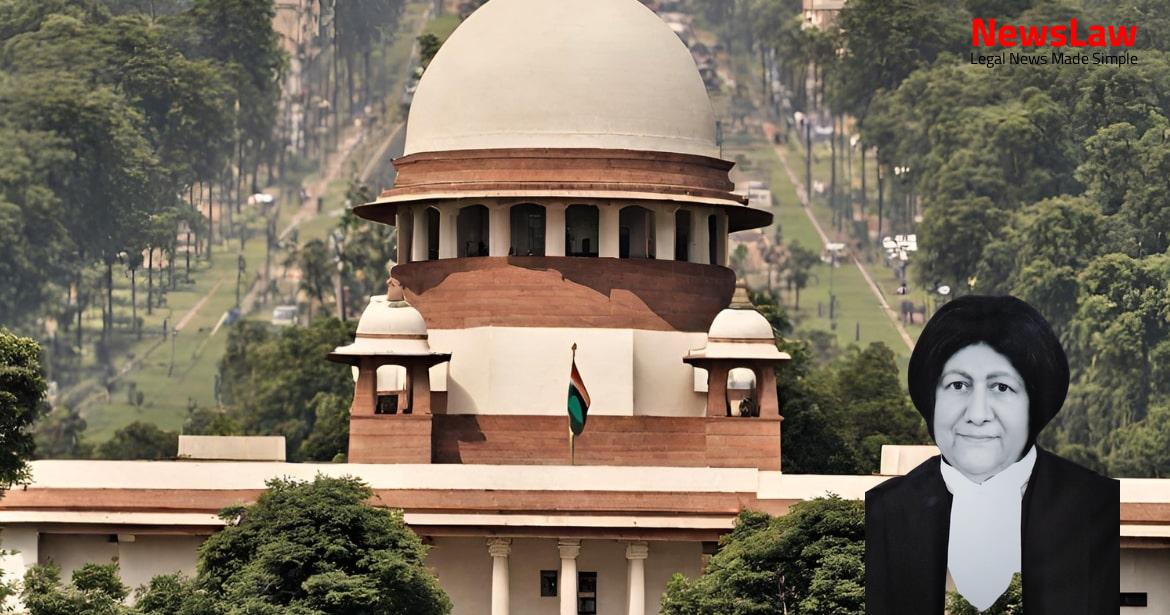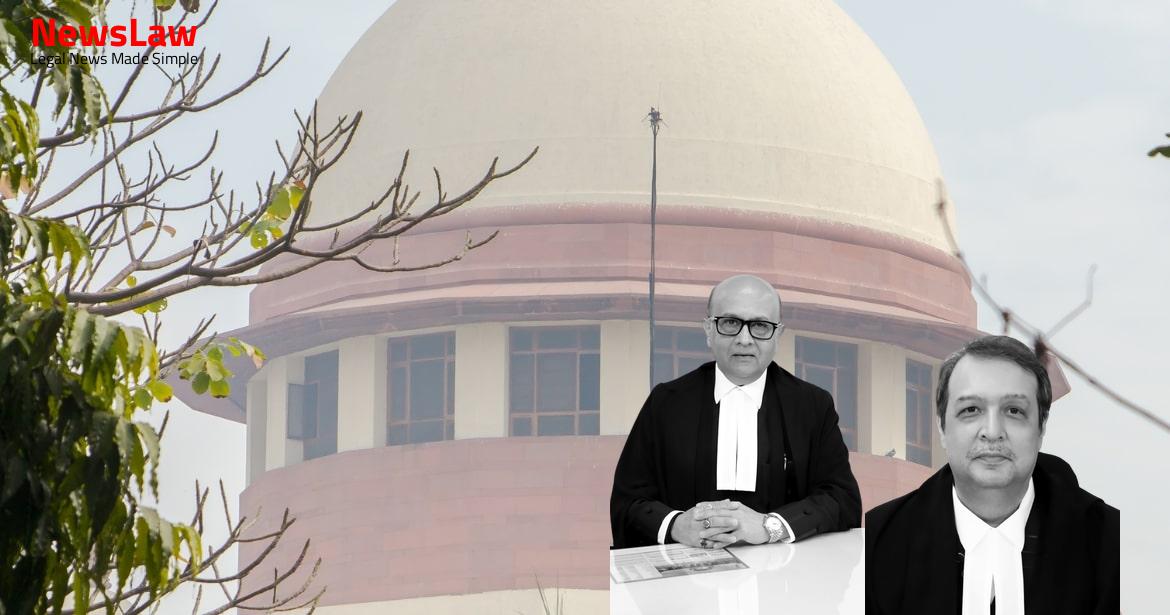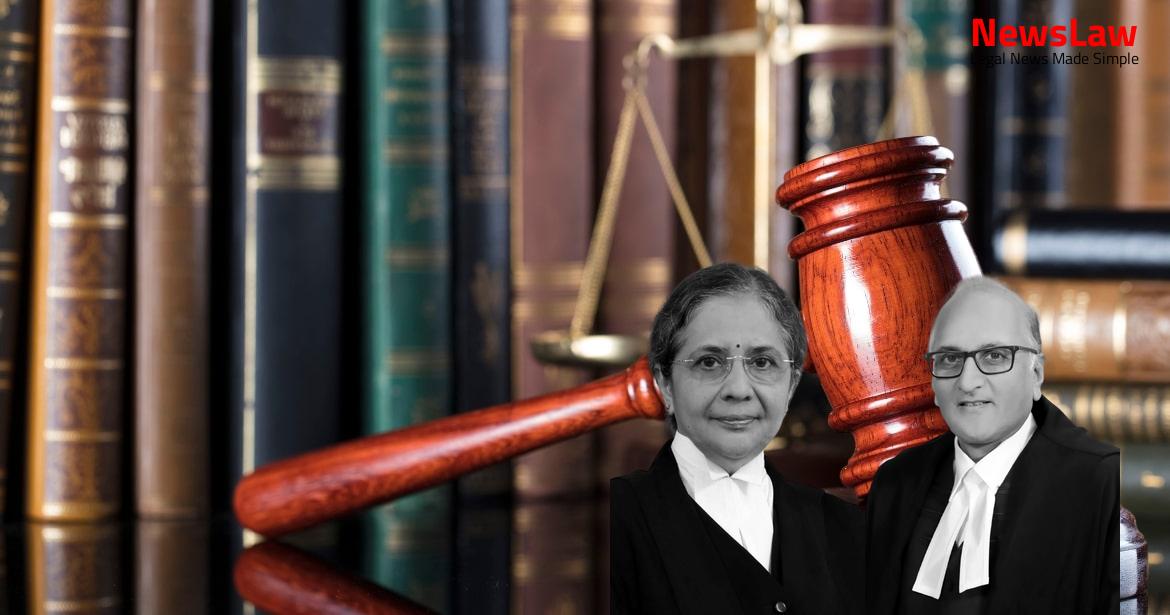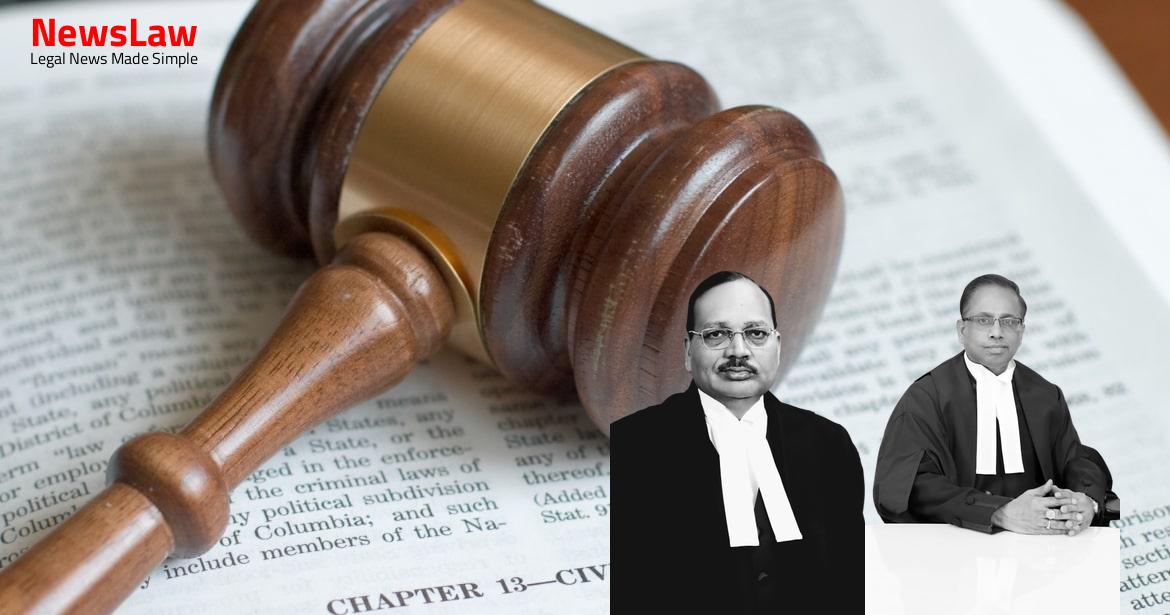A significant legal case involving the State of Rajasthan and the accused has been decided by the Supreme Court of India, focusing on the competency of child witnesses. The judgment delves into the challenges of recording testimony from young witnesses and establishes protocols for assessing their capacity to provide evidence in court.
Facts
- PW-3 and PW-4, the children of the appellant and the deceased, were unable to recognize the judge and lawyers in court.
- Both witnesses were brought to depose about the circumstances leading to their mother’s death.
- PW-3 was eight years old and PW-4 was six years old when their evidence was to be recorded.
- The trial judge deemed PW-3 incapable of testifying as a witness due to not recognizing the court officials.
- No evidence was recorded from either PW-3 or PW-4 due to their inability to identify the court personnel.
- The exchange between the trial judge and the child witnesses revealed their lack of awareness of the court environment.
- The High Court concluded that the trial judge’s grounds for not allowing the recording of evidence of PW-3 and PW-4 were erroneous.
- The Trial Court had considered the statements of the child witnesses recorded under Section 164 of the CrPC, but refused to allow their evidence to be recorded based on an identification issue.
- The High Court set aside the Trial Court’s judgment and remanded the case for examining PW-3 and PW-4 to ascertain their capacity to depose.
- The Trial judge found sufficient evidence to sustain charges under Section 302 and Section 498A against the accused, beyond reasonable doubt.
- No revision was filed by the prosecution after the trial judge held the child witnesses incompetent to depose.
- A substantial period has elapsed since the incident, and the direction to record the child witnesses’ evidence may cause prejudice to the accused-appellant.
- The Trial Court was directed to provide an opportunity for the accused to lead evidence in rebuttal.
- The appellant was convicted by the Sessions Judge, Fast Track Mahila Court, for offences under Section 302 and Section 498A, leading to a life sentence and a three-year imprisonment term.
Also Read: National Task Force for Healthcare Safety: Ensuring Dignity and Protection for Medical Professionals
Arguments
- The appellant surrendered two days after the incident took place on 18 January 2014.
- The learned counsel argued that the High Court should evaluate the appeal based on the evidence available in the record.
- The counsel aims to establish that the chain of circumstances is incomplete and seek acquittal following principles of circumstantial evidence.
- The prosecution has been disabled from presenting the evidence of two children who were natural witnesses to the crime.
- The High Court’s decision should be affirmed to prevent a miscarriage of justice due to errors in the Trial Court’s reasoning for excluding the testimonies of the children.
- The testimonies of PW-3 and PW-4 were recorded under Section 164 of CrPC by a Judicial Magistrate.
- The appellant would have the opportunity to cross-examine the witnesses if their testimonies are allowed.
- The State supports the High Court’s decision, arguing that allowing the child witnesses to depose could potentially prejudice the appellant.
Also Read: Railway Compensation Case: Supreme Court Judgment
Analysis
- The trial judge wrongly prevented the evidence of child witnesses PW-3 and PW-4 from being recorded.
- Both PW-3 and PW-4 were aware of the reason for being present in court.
- The High Court remanded the proceedings back to the Trial Court to assess the capacity of the child witnesses.
- The Trial Court must pose relevant questions to determine the child witness’s capacity to provide rational answers.
- Section 118 of the Evidence Act deals with the competence of a person to testify in court.
- The trial judge’s concerns about the child witnesses’ competence were found to be erroneous.
- The High Court directed the trial judge to objectively assess the child witnesses before recording their evidence.
- Child witnesses under 12 years can be examined without oath or affirmation.
- Child witnesses need to demonstrate the intellectual capacity to understand and answer questions coherently in court.
- The High Court’s decision was based on an appeal by the accused challenging the trial court’s approach.
- The High Court’s power in appeals against convictions is limited to what the lower court could and should have done in the criminal case.
- The competency of a witness, regardless of age, is based on their ability to understand and answer questions in court.
- The accused will have the right to cross-examine the witnesses once their statements are recorded again.
- Special Leave Petition was filed in the Supreme Court challenging the High Court’s order for a re-recording of statements.
- In the State of Rajasthan, the accused persons were convicted of various offences under IPC sections and were sentenced to death.
- The US Supreme Court in Wheeler v United States laid down a rule that was referred to in the case.
- The competency of a child witness was discussed in the cases of Ratansinh Dalsukhbhai Nayak v State of Gujarat and Dattu Ramrao Sakhare v State of Maharashtra.
- The High Court, using its powers under Section 386(b) of CrPC, set aside the Trial Court’s judgment and remanded the matter to record statements of witnesses again with the accused present.
- The powers of the Appellate Court to order a retrial under CrPC Section 386(b) were discussed in cases like Mohd Hussain v State (Govt of NCT of Delhi) and Ajay Kumar Ghoshal v State of Bihar.
- No precise rule can be laid down regarding the competency of child witnesses, and it is left to the judge to assess the capacity of the child witness.
- In accordance with the law established in State of Maharashtra v Bandu alias Daulat, the trial judge must ensure a child-friendly environment for recording the evidence of PW-3 and PW-4.
- The appellant has the right to cross-examine the witnesses after their evidence is recorded by the trial judge.
Also Read: Scheduled Castes Reservations: Sub-Classification Dispute
Decision
- Appeal is dismissed.
- Pending application(s) stand disposed of.
- No merit found in the appeal.
Case Title: P. RAMESH Vs. STATE REP. BY INSPECTOR OF POLICE
Case Number: Crl.A. No.-001013-001013 / 2019



